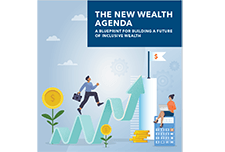Discover financial empowerment resources
Discover financial empowerment resources
A report based on 2021 Census data, about socioeconomic characteristics (e.g. poverty rates and earnings) among transgender men, transgender women and non-binary people, in comparison to cisgender men and...

Canadians with low incomes lack access to the financial help they need to rebuild their financial health and resilience. Watch the webinar from September 17, 2025 as we present findings from our recent report: Closing the Divide: Solutions for Canada’s Financial Help Gap. Prosper Canada’s...
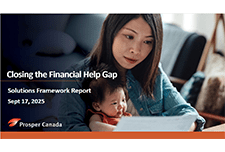
In 2020, racialized individuals were less likely than non-racialized individuals to have income from multiple sources after the age of 65. Among all racialized individuals aged 65 and over, Japanese individuals were most likely to have private retirement income (74%) and investment income...
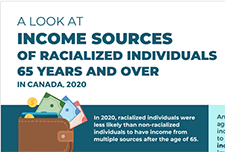
Low-cost accounts cost a maximum of $4 per month in banking fees. The Government of Canada and certain financial institutions have an agreement to provide low-cost basic banking services. If you meet certain conditions, you may be eligible for a low-cost account at no cost. No-cost accounts have...

Women and girls are highlighted within Canada’s National Financial Literacy Strategy as a diverse population that can benefit from tailored approaches to strengthen financial resilience. To help close the gender gap, the Financial Consumer Agency of Canada (FCAC) developed and tested the benefits...

The Working Centre in Kitchener-Waterloo has been dedicated to aiding marginalized populations for over 40 years. In partnership with Prosper Canada, it embarked on an initiative to connect the populations they serve to government benefits and tax filing support. Recognizing the intricate...
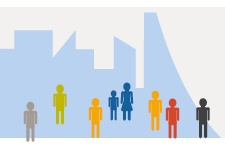
In partnership, Daily Bread Food Bank and North York Harvest Food Bank have released Who’s Hungry 2024 – an annual profile of poverty and food insecurity in the City of Toronto. In the last year, there were 3.49 million client visits to Toronto food banks – nearly 1 million more visits...
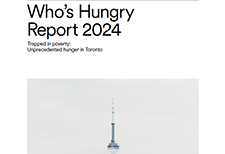
Among the truly urgent crises facing the United States is widespread household financial insecurity. A stunning 51% of U.S. households have expenses that are at least equal to—if not greater than—their income, and 55% lack the necessary savings to weather a simultaneous income drop and expense...

Every day in Canada, nearly 1 in 4 people worry about eating, compromise on the quantity and quality of their groceries and/or go without food due to financial constraints. Food insecurity disproportionately impacts some groups, including Indigenous and racialized peoples, people with...
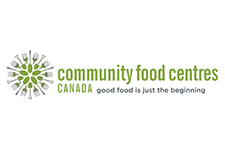
Sustained investment in Native American small business development is imperative to a philanthropic agenda focused on economic justice. Philanthropy centers justice and expedites the growth of Native American wealth building by channeling grant dollars and impact investments toward the ecosystems...
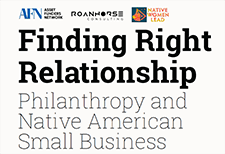
Despite the fact the story is three years old, it made the rounds online again, and it's also still valid. Indigenous women are starting new businesses at twice the rate as Indigenous men, but they face significant barriers to accessing funding. This is something that hurts everyone -...
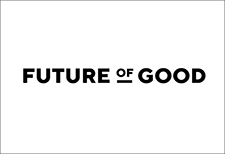
As life expectancy in the U.S. increases, older adults will comprise a larger share of the population than ever before. At the same time, older adults will play an increasingly important role in the U.S. economy. Their contributions through consumption, labor, and unpaid activities—such as...

Wealth inequality, health and health equity is one in a series of ongoing think pieces from Wellesley Institute that aim to stimulate ideas and new conversations to create a fairer and healthier tomorrow. Canadians are struggling with the rising cost of living. A national survey in November 2023...

Internet use in Canada is prolific, with 94% of Canadians going online for personal use in 2022, up from 91% in 2018. Not only are more Canadians using the Internet since the COVID-19 pandemic, but more are managing their personal and household finances online. Based on data from the Canadian...

Parents and caregivers worry about who will be there when they are no longer able to care for their loved ones with a disability. It is a question that weighs heavy on families. Family members, or parents, want to know what options will be available and who will be making decisions for their loved...

The Organisation for Economic Co-operation and Development (OECD) is an international organisation establishes evidence-based international standards and finding solutions to a range of social, economic and environmental challenges. The OECD/INFE Toolkit includes a financial literacy questionnaire...
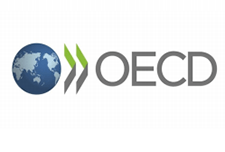
Upwards of 450,000 Indigenous people identify as having a disability, functional, or activity limitation, but it is unknown how many of those people are women, girls, or gender diverse because of inaccurate and insufficient data. Indigenous people are more susceptible to living with a disability...
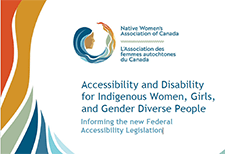
The Government of Canada has put together statistics highlighting sociodemographic diversity, educational attainment, labour market participation and business ownership and income and inequality for Black History...

Fast facts: More than 99 per cent of Canadians have a bank account 31 per cent of Canadians say they pay no service fees at all and another 45 per cent pay $15 or less per month Canadians are careful borrowers. Only 0.17 per cent of mortgages are in arrears Access this resource to read...

This report presents the findings of research aimed at advancing social innovation and social finance in Canada. The study focused on understanding the enablers and barriers of social finance, as well as exploring why social purpose organizations (SPOs) engage in social finance. The research also...
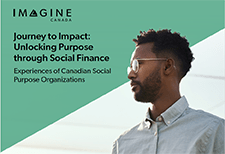
The Future of Wealth Discussion Series consist of 1-hour virtual convenings that are open to the public and bring together leaders across sectors and disciplines to consider wealth-building objectives that Aspen FSP considers critical to creating widespread household financial well-being. Click on...

Since 2020, the Bank of Canada has engaged with Canadians, the financial industry and civil society groups to better understand how a digital version of the Canadian dollar might affect everyone. Bilateral and roundtable discussions were held, as well as demographically representative focus groups...
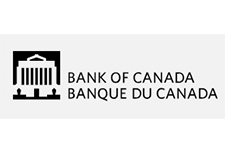
This is a custom report produced by Statistics Canada in collaboration with the Assembly of First Nations. It includes key social and economic statistics regarding Status First Nations people living on and off reserve and includes comparisons with the non-Indigenous...
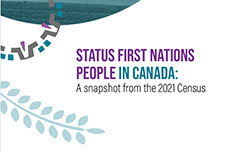
In 2014, the government of BC declared October RDSP Awareness Month to help raise awareness about the Registered Disability Savings Plan (RDSP). The RDSP is the world’s first savings plan specifically designed for people with disabilities. Even with little to no personal contributions, there are...
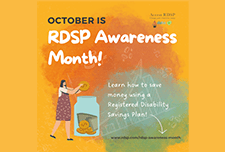
Widespread household financial insecurity is an undeniably urgent crisis in the United States today. A stunning 51 percent of U.S. households have expenses that are equal to or greater than their income, and 55 percent lack the necessary savings to weather a simultaneous income drop and expense...
